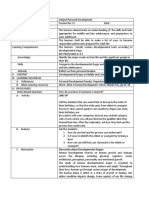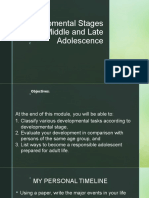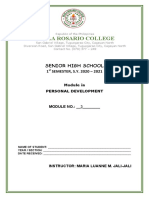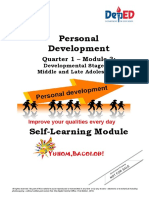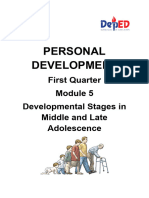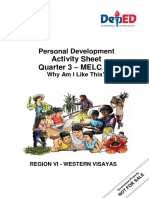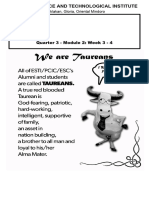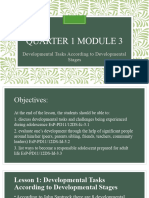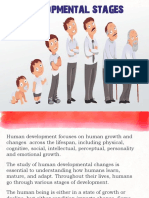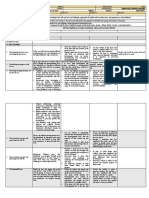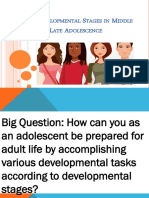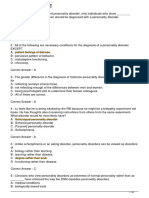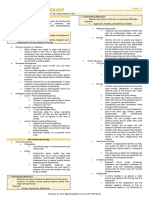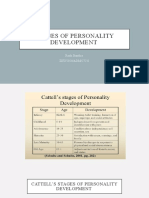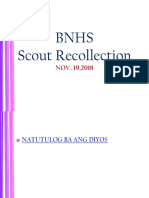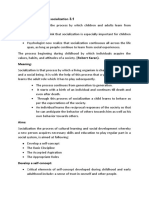0% found this document useful (0 votes)
224 views5 pagesPersonal Development Module 4
This learning module covers developmental stages for 11th grade students. It includes 4 lessons that discuss middle to late adolescence. Students will classify developmental tasks according to stages. The module provides a developmental stages table that outlines 8 stages from pre-natal to old age. Students will assess their own accomplishments through tasks and questions. They reflect on transitioning from high school to college and becoming more independent. The module aims to help students understand their development and prepare for adult responsibilities.
Uploaded by
Venus BolingotCopyright
© © All Rights Reserved
We take content rights seriously. If you suspect this is your content, claim it here.
Available Formats
Download as DOCX, PDF, TXT or read online on Scribd
0% found this document useful (0 votes)
224 views5 pagesPersonal Development Module 4
This learning module covers developmental stages for 11th grade students. It includes 4 lessons that discuss middle to late adolescence. Students will classify developmental tasks according to stages. The module provides a developmental stages table that outlines 8 stages from pre-natal to old age. Students will assess their own accomplishments through tasks and questions. They reflect on transitioning from high school to college and becoming more independent. The module aims to help students understand their development and prepare for adult responsibilities.
Uploaded by
Venus BolingotCopyright
© © All Rights Reserved
We take content rights seriously. If you suspect this is your content, claim it here.
Available Formats
Download as DOCX, PDF, TXT or read online on Scribd
/ 5




